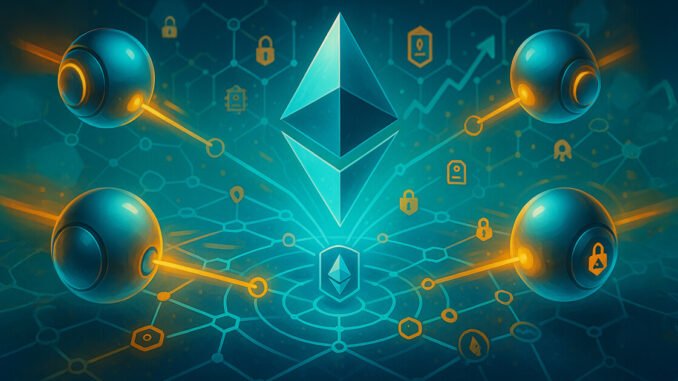
Artificial intelligence (AI) is evolving beyond chatbots and copilots, and the next frontier of this fast-developing industry is a world of AI agents.
These autonomous digital actors can browse the web, negotiate contracts, make payments, and collaborate with other machines.
The market supporting this shift is immense, with data from Statista projecting the global AI sector to surpass $1 trillion by 2031. Notably, the report suggests that a significant market share would be dedicated to agentic systems capable of independent decision-making.
Yet one question dominates the conversation: How will millions of these autonomous agents trust, verify, and transact with each other?
While technological firms like Google are racing to build centralized agent ecosystems, developers within the crypto community argue that the most neutral and verifiable substrate for this emerging machine economy isn’t a corporate cloud—it’s Ethereum.
Why Ethereum matters for AI
Ethereum’s open ledger already secures more than $550 billion in on-chain assets and millions of smart contracts.
For developers like Binji, an Ethereum Foundation engineer, that makes it a natural foundation for “trustware”—a public layer where machines can anchor identity, memory, and proof of action.
According to him:
“if you were an agent with no loyalty except to your own survival, you wouldn’t want to bet your memory and reputation on one corporation or one government: you’d want a ledger that no one could quietly change behind your back. you’d want neutral ground. you’d want Ethereum.”
ERC-8004
Considering this, the network developers have been working on a technical framework to enable these AI agents to thrive without a third-party intervention.
On Oct. 9, the Ethereum Foundation’s dAI team and Consensys unveiled ERC-8004, a new standard designed to enable AI agents to discover, authenticate, and cooperate directly on-chain, without centralized intermediaries.
At its core, ERC-8004 extends the Agent-to-Agent (A2A) protocol with three lightweight registries for Identity, Reputation, and Validation.
Each agent receives a portable on-chain identity encoded as an ERC-721 token, allowing it to be viewed, transferred, or managed via existing Ethereum wallets. The registry file linked to that NFT describes the agent’s skills, endpoints, and metadata, forming a standardized “passport” for machine actors.
The proposal enables agents to establish trust autonomously without centralized intermediaries, bridging the gap between AI systems and blockchain infrastructure.
The framework also supports on-chain reputation by integrating x402 payment proofs and feedback data, allowing agents to build provable behavior histories.
Essentially, ERC-8004 positions Ethereum as the potential coordination layer for a decentralized AI economy. In this environment, AI agents, not humans, will negotiate transactions, manage resources, and form DAOs.
Binji stressed that the technology could fuel the next boom in AI agents, while simultaneously boosting Ethereum’s core value proposition of “trust without intermediaries.”
He added:
“This is just the beginning of machines running on trustware. smart contracts are how we will communicate with ai, the immutable ledger is how they will communicate with eachother, and ethereum is how we will build this right.”
Mentioned in this article


